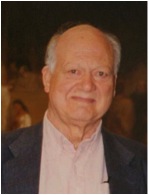

|

|
IN MEMORIAM
Fields W. Cobb, Jr.
Professor of Environmental Science, Policy & Management, Emeritus
UC Berkeley
1932-2011
Fields Cobb, a man of great integrity who fought a long and courageous battle with both heart disease and diabetes, passed away in Sandpoint, Idaho on November 7, 2011, at the age of 79.
Cobb was a unique person with an unusual background that undoubtedly led him to become a forest pathologist and true environmentalist. As a young boy growing up in a rural town with 300 inhabitants under the tutelage of his father and uncles, his playground was the forest and swamps. He often remarked that he grew up hunting, fishing, and learning about snakes and chiggers. He later credited Arthur Kelman and George Hepting of North Carolina State University and John Boyce of Yale University, all well-known plant pathologists, for their role in interesting him in forest pathology.
Fields met his future wife, Octavia “Tavie” Hickcox Smith, while attending Yale. They were married on May 24, 1958, and they moved to Pennsylvania State University, where Fields pursued his PhD in Forest Pathology. His dissertation work was on oak wilt. While at Penn State, they had their first child, Cynthia Leigh Cobb, and about two and a half years later their first son, David Fields Cobb. Shortly after receiving his PhD, Fields was offered a position as Professor of Forest Pathology at the University of California, Berkeley. After the move to California, the family grew by another son, Stephen Lewis Cobb.
Fields taught and conducted research in forest pathology at Berkeley for thirty years. He worked on a wide variety of forest tree diseases in California. He was best known for his work on root diseases, especially Annosum root rot and black stain root disease, and on the interactions of fungi with bark beetles. He was an insightful researcher, often pointing to the interactions of forest trees, pathogens and insects at the landscape level. Teaching was an absolute joy for him. For many years he taught Forest Insects and Diseases to forestry majors with Don Dahlsten. He mentored 18 Ph.D. candidates and many Master’s students. His Ph.D. students included many pathologists currently employed in US and Canadian Government and University positions. Fields was terrifically proud of his students’ accomplishments, and he lives on through the positive impact he had on them.
I (M.G.) was the last of his graduate students and later inherited his position as the Forest Pathologist at U.C Berkeley. I literally have had huge shoes to fill, not only because of Fields’s size (he was an imposing 6’ 2” man with an dynamic personality), but also because of his wits, his amazing ability to understand the complexity of natural processes in forest, and his dedication to teaching. He was demanding because Forest Pathology was not his job but his life calling and left an indelible mark not just on me, but on all those he interacted with. The forest was his home away from home. All those who worked with him can't think of a class field trip, Blodgett Forest, root disease centers, bark beetles, or a hard-fought hearts game and not think of Fields. As student protests are returning to campus, Fields comes to mind. He was a great advocate for the students, a true believer in the CRS program, and he loved a good fight in faculty meetings.
In 2008, Fields and his colleague Dick Parmeter were recognized by their graduate students and peers with a large and boisterous reunion in Post Falls, Idaho. I had no idea how many people had exactly the same experience I had with him. It was a fun and incredibly moving experience. At that meeting, I realized Fields was in fact one of the “fathers” of the current generation of Forest Pathologists in North America.
Fields is survived by his wife, Octavia; daughter Cynthia Cobb of Snohomish, Washington; son David Cobb of Priest Lake, Idaho, son Stephen Cobb of Council, Idaho, and two grandchildren.
Matteo Garbelotto
Tom Bruns
Detlev R. Vogle and
Thomas Harrington in cooperation with the Cobb Family